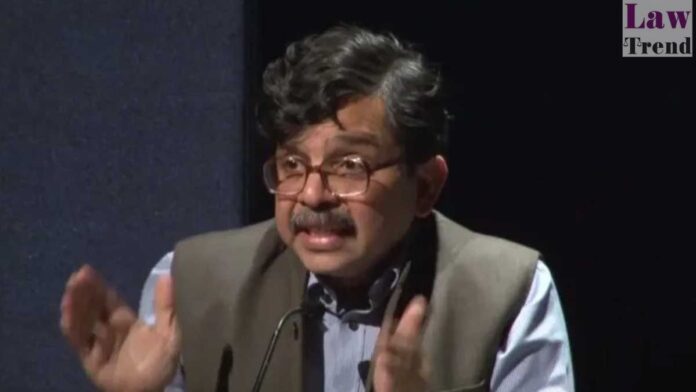At a lecture hosted by the Kochi International Foundation and the National University of Advanced Legal Studies (NUALS), Justice (Retd.) Dr. S. Muralidhar delivered a powerful address on “Transformative Constitutionalism and the Role of the Judiciary”, exposing the persistent realities of caste-based discrimination in Indian society despite 75 years of constitutional promises.
Opening the lecture with a clip from Shyam Benegal’s television series Samvidhan, Justice Muralidhar reflected on the concerns that preoccupied the minds of the Constitution’s framers on 26th November 1949. “Many of these questions have remained with us,” he said, underlining the ongoing struggle to realize the egalitarian vision of the Constitution.
One of the most striking moments of the lecture came when Justice Muralidhar recalled an incident involving a sitting judge of the Allahabad High Court. “There was a judge in Allahabad who cleaned his chamber with gangaajal because the previous occupant was Dalit,” he revealed. “These are the harsh facts of our lives in India.”
He cited several similar instances of caste and communal bias persisting in both rural and urban India. “Dalit men cannot ride a horse on their own wedding day,” he said, drawing attention to the denial of basic dignity. “In rural areas, there are places where Dalits still cannot walk freely. In cities, houses are not rented out to Muslims. People are excluded for eating non-vegetarian food.”
These examples, he stressed, are a direct challenge to the Constitution’s transformative vision, particularly provisions like Article 15 and Article 23, which prohibit discrimination and forced labour, respectively. “If these provisions were being enforced seriously, we wouldn’t still have people practicing untouchability,” he said. Referring to another disturbing example, he pointed out, “A ruling party MLA purified his house because it was previously occupied by a Dalit. He should have been publicly reprimanded by his party, but he did not think twice before doing it.”
Responding to criticisms that the Indian Constitution is largely a compilation of borrowed ideas, Justice Muralidhar clarified that the framers had carefully studied constitutions around the world and selectively adopted and adapted what they believed would serve India best. “Importantly,” he noted, “they added provisions unique to our context.”
Emphasizing the Preamble’s commitment to “Justice—social, economic and political”, he reminded the audience that the Constitution recognizes, rather than grants, fundamental rights. “The preamble talks of distributive justice and effective equality—not just formal equality,” he said. “It begins by proclaiming that we give ourselves this Constitution. Nobody gave us our rights—we asserted them.”
Justice Muralidhar invoked Dr. B.R. Ambedkar’s warning that the two greatest absences in Indian society were equality and fraternity. “Our Constitution was aspirational,” he concluded, “but unless we confront the injustices that persist in our daily lives, we fall short of that aspiration.”
The lecture was a sobering reminder of the judiciary’s ongoing role not just in interpreting the Constitution, but in upholding its transformative promise.




